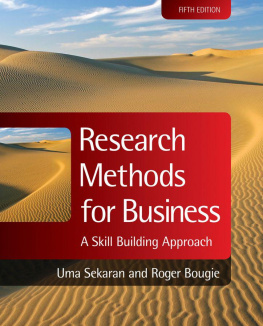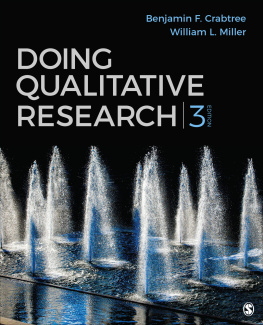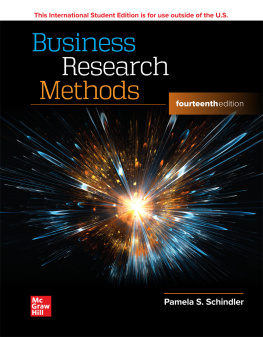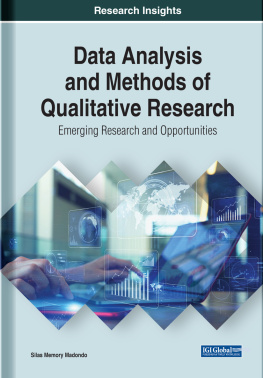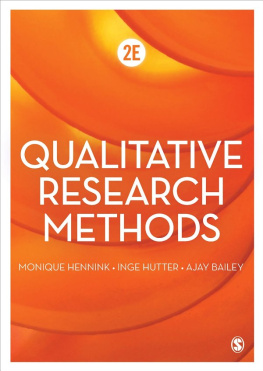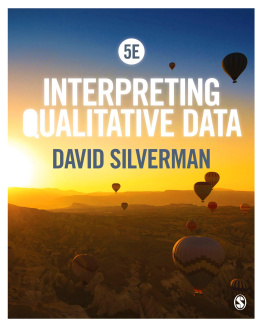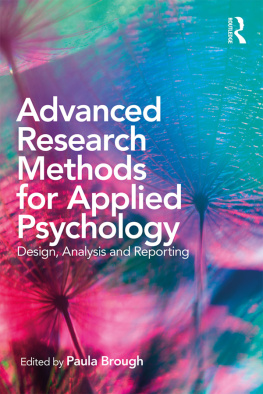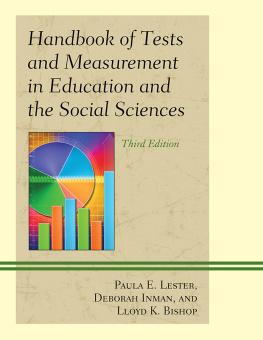Uma Sekaran was Professor Emerita of Management, Southern Illinois University at Carbondale (SIUC), Illinois. She obtained her MBA degree from the University of Connecticut at Storrs, and her PhD from UCLA. She was the Chair of the Department of Management and also the Director of University Women's Professional Advancement at SIUC when she retired from the University and moved to California to be closer to her family.
Professor Sekaran authored or co-authored eight books, 12 book chapters, and more than 55 refereed journal articles in the management area, and presented more than 70 papers at national, international, and regional management conferences. She also won recognition for significant research contributions to cross-cultural research from US and international professional organizations. She received Meritorious Research Awards both from the Academy of Management and SIUC, and was conferred the Best Teacher Award by the University.
Roger Bougie is a Lecturer in the Department of Marketing at Tilburg University (The Netherlands), where he teaches courses in Marketing and Business Research Methods. He has received a number of teaching awards, including the Best Course Award for his course on Business Research Methods.
Dr Bougie's main research interest is in emotions and their impact on consumer behavior. He obtained his PhD from Tilburg University in 2005. His dissertation was nominated for the Dutch Marketing Science Award 2005 and his publications have appeared in, amongst others, the Journal of the Academy of Marketing Science . Dr Bougie is ad hoc reviewer for the Journal of the Academy of Marketing Science , the Journal of Business Research , and Marketing Letters .
Preface
I have used this book in my research methods course with great success for more than ten years. Over these years the book has helped thousands of my own students, as well as many more around the world, to carry out their research projects. The great strength of Research Methods for Business is that students find it clear, informal, and nonintimidating. I have tried to maintain these strengths and Uma's style in the fifth edition.
Changes in the fifth edition
The chapters on scientific investigation, the broad problem area and defining the problem statement, measurement of variables, experimental designs, sampling, and quantitative data analysis have all been substantially revised. A second chapter on quantitative data analysis and a chapter on qualitative data analysis have been added to the book. Additional real-life cases and examples are presented to introduce students to the world of business research.
As in previous editions, the simple and informal style of presenting information has been maintained and the focus on practical skill building preserved. The book provides numerous examples to illustrate the concepts and points presented. Users will also note the variety of examples from different areas of the world Europe, Asia, and America as well as different areas of business human resources management, production, operations management, business policy and strategy, organizational behavior, marketing, information systems, accounting, and finance. It is hoped that students will find research interesting, nonintimidating, and of practical use.
Data analysis is illustrated through the current SPSS Version 16.0 in the data analysis chapter.
Most chapters in the book include managerial implications of the contents discussed, emphasizing the need for managers to understand research. The ethical considerations involved in conducting research are also clearly brought out. The dynamics of cross-cultural research in terms of instrument development, surveys, and sampling are discussed, which, in the context of today's global economy, will be useful to students.
I expect that students and instructors alike will enjoy this edition. Students should become effective researchers, helped by the requisite knowledge and skills acquired by the study of this book.
Companion websites
Lecturers and students have a dedicated companion website available from www.wileyeurope.com/college/sekaran
Lecturers will find an extensive Test Bank, PowerPoint slides, and an Instructor's Manual, which offers a valuable additional teaching aid. Students will find an online glossary, quizzes, and walkthrough videos explaining how to use SPSS.
Acknowledgments
The Marketing Department of Tilburg University has been a very pleasant and inspiring working environment. I would like to thank all my colleagues for their feedback on earlier versions of this book. Thank you Rik Pieters and Marcel Zeelenberg for teaching me most of what I know about research.
Several people have been extremely helpful in writing this book. I want to thank Deborah Egleton for giving me the opportunity to revise the book and for being very supportive and patient throughout the process of writing this revised edition. Finally, I would like to thank the reviewers for their insightful comments on earlier drafts of the chapters.
Roger Bougie
The first edition of this book Research Methods for Business was published in 1984. I am pleased that it has served the needs of students during the last 25 years in three continentsNorth America, Europe and Asia. Roger Bougie has been instrumental in changes in the Fifth Edition, and with his contributions, we hope that the book will serve the needs of students during the next 25 years.

